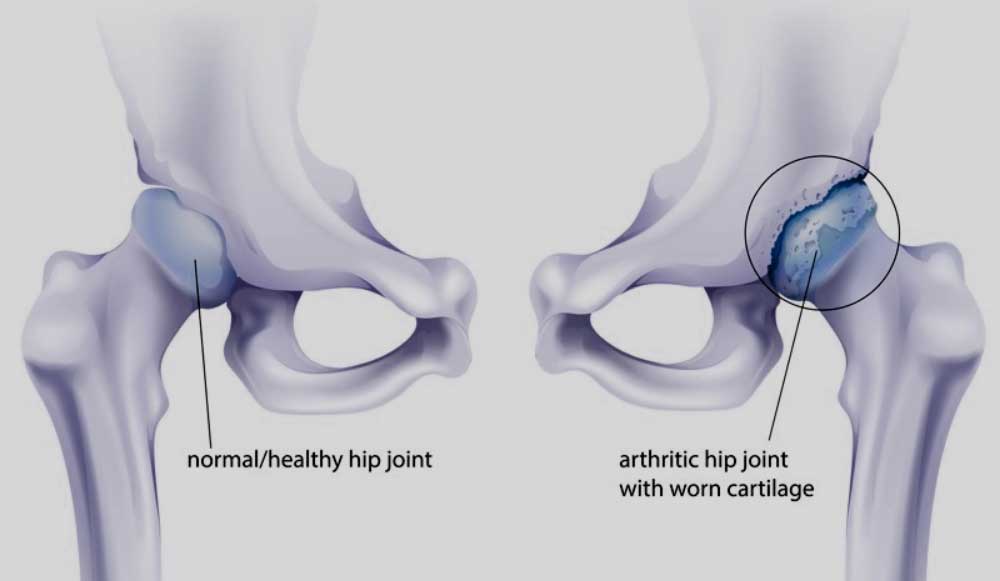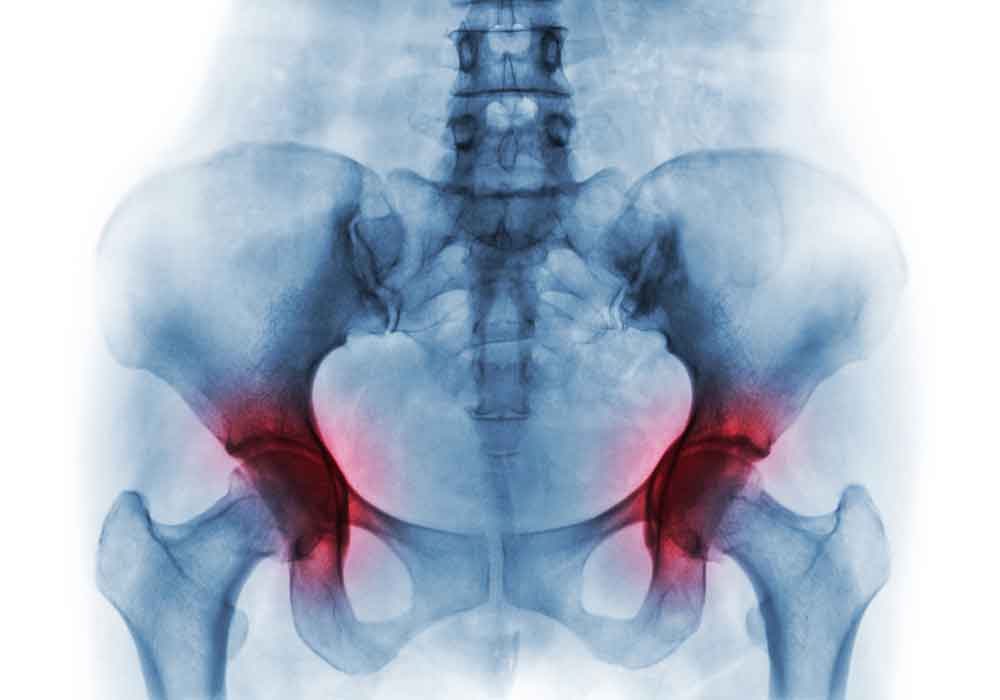Hip Arthritis Specialist

Osteoarthritis can develop in any joint in the body but is most often seen in the weight-bearing joints, such as the hip. Patients who are exhibiting early signs of arthritis of the hip, generally experience pain with increased activity, stiffness in the hip joint, limited range of motion, and crunching or popping sounds. Hip arthritis specialist, Doctor Benedict Nwachukwu provides diagnosis as well as surgical and nonsurgical treatment options for patients in Manhattan, New York City, NY who have developed hip arthritis. Contact Dr. Nwachukwu’s team today!
What is arthritis of the hip?
Osteoarthritis is the most common type of arthritis in the world today. Also known as “wear and tear” arthritis and affecting nearly 31 million Americans, the burden of osteoarthritis is expected to expand to 78 million by the year 2040. Osteoarthritis can develop in any joint in the body but is most often seen in weight-bearing joints, such as the hip. Approximately 300,000 total hip replacement procedures are performed each year in patients suffering from hip arthritis.
With the expansion of joint preservation techniques, there are increased options for patients with early hip arthritis who have hip pain but are not yet ready for a hip replacement. Dr. Benedict Nwachukwu, orthopedic hip specialist, treats patients in Manhattan, New York City and surrounding New York boroughs who are suffering from early-stage arthritis of the hip.
What are the early stages of hip arthritis?
Arthritis behaves differently in the hip for many people. Typically, physicians expect hip arthritis to come on gradually, over time, and be associated with advancing age. However, the onset of symptoms may sometimes be surprisingly sudden, and patients may experience intermittent episodes of spontaneous remission without symptoms of any kind. Arthritis can also strike young adults even without a family history of disease and may be isolated to a single joint. The most common form of arthritis that Dr. Nwachukwu treats is:
Osteoarthritis in the hip is simply accelerated wear and tear of the joint. A previous injury may leave the joint damaged and susceptible to progressive breakdown. Variations in how the joint is shaped may also lead to abnormal joint mechanics and accelerated wear. Conditions commonly contributing to the progression of hip arthritis are hip dysplasia and femoroacetabular impingement (FAI). FAI is a condition characterized by abnormal bony build-up around the acetabulum. In both of these conditions, abnormal anatomy may result in accelerated cartilage breakdown.
What are the symptoms of early hip arthritis?
Patients with early hip arthritis will often complain of groin and anterior hip pain. Symptoms of arthritis of the hip tend to worsen as the condition progresses. However, symptoms do not always progress steadily with time. Often, patients in New York report good or bad months when symptoms change or the weather changes. This is particularly important because Dr. Nwachukwu understands that comparing the symptoms of hip arthritis on one particular day may not give a true representation of the overall progression of the condition. Patients who are suffering from early arthritis of the hip, generally report the following symptoms:
- Pain with increased activity
- Stiffness in the hip joint
- Limited range of motion
- Walking with a limp
- Pain in the thigh, knee or groin
- Crunching or popping sounds
- Feeling that the hip bones catch, grate or rub
How is early arthritis of the hip diagnosed?
Dr. Nwachukwu will conduct a thorough physical examination of the hip joint to find areas of tenderness or pain and to check overall mobility. A variety of tests may be performed to confirm the diagnosis of hip arthritis, including X-rays and/or an MRI scan.
How can early hip arthritis be treated?
Dr. Nwachukwu prefers to take a conservative approach when first treating early hip arthritis. Some patients are able to live with the symptoms of early hip arthritis for years before finally seeking treatment. Dr. Nwachukwu can help patients in New York determine which treatments are appropriate for them.
Non-Surgical Treatment:
- Weight Loss
- Activity Modification
- Rest and Ice
- Physical Therapy
- Brace therapy
- NSAIDs – Non-steroidal anti-inflammatory drugs
- Hip Injections – corticosteroids and platelet-rich plasma
Surgical Treatment:
- Hip Arthroscopy – A minimally invasive approach that can be used to perform arthroscopic debridement of torn cartilage and repair labral injury associated with hip joint degeneration. In patients with early arthritis, this may delay the need for a hip replacement
- Subchondroplasty – In select patients with bone cysts of the acetabulum, a subchondroplasty can be performed in order to provide structural support to the bone and alleviate the pain associated with early hip arthritis
What is the recovery like after hip surgery for arthritis?
A rehabilitation program will be provided at the time of surgery by Dr. Nwachukwu and his staff. Rehabilitation after surgery is as important as the surgical repair itself. Without proper rehabilitation and physical therapy, the chance of full recovery is diminished. Depending on the exact surgical procedure that was performed, the patient will be required to do exercises and strengthening moves with a physical therapist.
For additional resources and information on arthritis in the hip, or to learn more about arthroscopic hip surgery to treat early hip arthritis, please contact the office of Benedict Nwachukwu, MD, orthopedic hip specialist serving Manhattan, New York City and surrounding New York boroughs.







